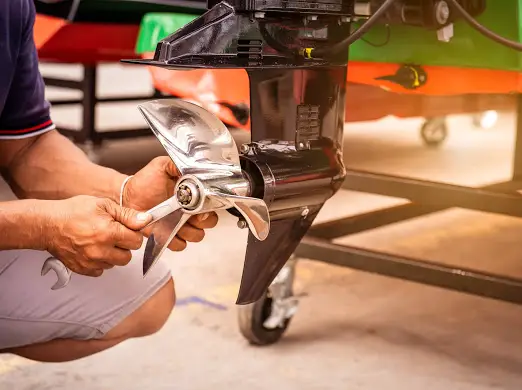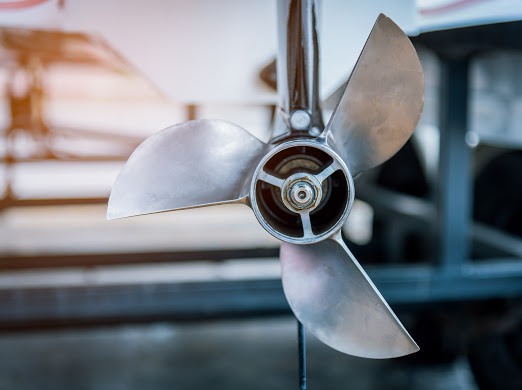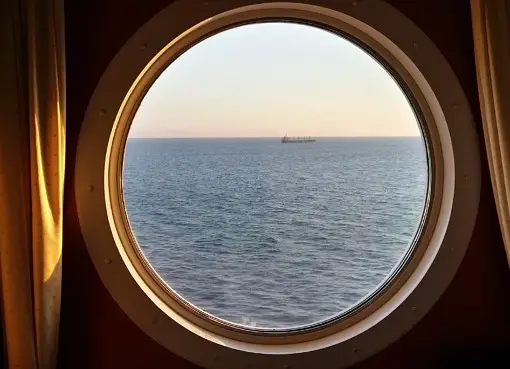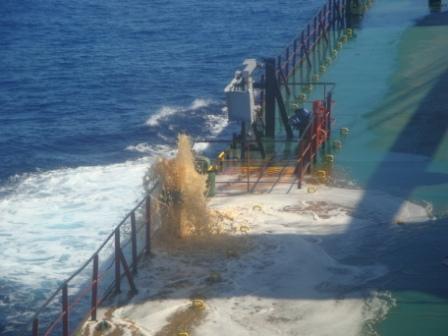The propeller is a significant technical component of a boat. Its design, construction, and specification can influence other parts of the floating vessel, especially on fuel efficiency. Understanding the importance of this element helps you avoid accidents and risks while sailing.
Continue reading to know four reasons why boat propellers are necessary for sailing.
1.Maneuver the Boat
One vital component to maneuver the boat is the propeller. Albeit different types of propellers exist, most of them tend to work on the same basic principles.
For instance, steering becomes effective when there’s water flowing through the rudder. This process happens in three ways:
● The boat gains momentum and moves through the water.
● The propeller sucks and blows water through its components.
● A stream of water, such as a tide, runs over the rudder.
You can steer the boat by moving the direction of the propeller’s face. For example, if you want to go to the starboard side, then you need to move the steering wheel to the right to turn the propeller in that direction.
If a boat is without a propeller, then steering and maneuvering become more challenging than usual. You may need to use boat oars in this regard.
So, if your vessel lacks a propeller, it’s paramount that you secure one soon. Check out the various choices on Getaprop.com to help you with your selection.
2.Increase or Decrease Speed
Aside from maneuvering the boat, the propeller is also responsible for giving the vessel the required amount of speed. A boat without a propeller may need to rely on other means to provide acceleration and speed to the vessel. But, different props provide varying performances with regards to speed.
A low-pitch prop is akin to a low gear in a bicycle or car. Boats with this propeller can accelerate quickly. However, top speed may suffer. Low-pitch props might not be ideal for beginner sailors as the quick acceleration might increase the chances of accidents.
Conversely, a propeller with a high pitch may quickly generate top speed than its low-pitch counterpart. But, acceleration might be weak.
You can determine the pitch by calculating the distance of the propeller when it moves forward in a single rotation. This motion is akin to a screw driven to a surface. Some props have a constant pitch. Thus, all parts of the pitch have the same distance from the blades’ leading to the trail edge.
Consider compromising between these extreme characteristics. Install a prop that complements your engine to find a “sweet spot” for everyday use. Opt to use Volvo Venta props in this regard since these propellers deliver efficient speeds to powerboats and sailboats.
3.Protects Small Engines
You may be the proud owner of a boat with a relatively small engine. Your vessel’s motor might be running with less than ten hp or 7.5 kW of power. Some props may include a failsafe device to stop the rotation when the engine becomes overloaded, thereby preventing small motors from overexertion.
Some modern propellers have hard polymer inserts called “drive sleeves” to replace rubber brushings in the event of engine overload. This part will fail under significant pressure. However, you can easily replace this component to return the propeller to standard efficiency.
A propeller may also help protect the drivetrain in the event of a collision. The inner hub or the sacrificial composite center of the prop will break or “spin” when it strikes a sturdy object. When this component breaks or “spins,” the rest of the propeller and the drivetrain can remain safe from additional damage.

4.Prevents Ventilation
Ventilation happens when the air from exhaust gases or the water’s surface draws to the propeller blades. The following event will make the propeller to over-rev, which loses its thrust. But, modern prop manufacturers now use anti-ventilation plates to reduce the risks of this event from happening.
The right boat propeller will help reduce the creation of bubbles when sailing at low-temperature waters. The prop will prevent cavitation, which is a process wherein the back of the unit’s blade creates and explodes bubbles that damage the boat’s parts.
Conclusion
Different propellers offer various benefits to different boats. But, many props follow an industry-standard design to present vessels with proper acceleration, speed, and safety.
Consider consulting a reliable and established propeller manufacturer or supplier to know which unit fits your boat the best. Otherwise, you might run into problems like ventilation and difficulties in steering when you outfit your boat with the wrong propeller.





Great post. Definitely this one of the informative and useful posts to me. Thanks for the share.